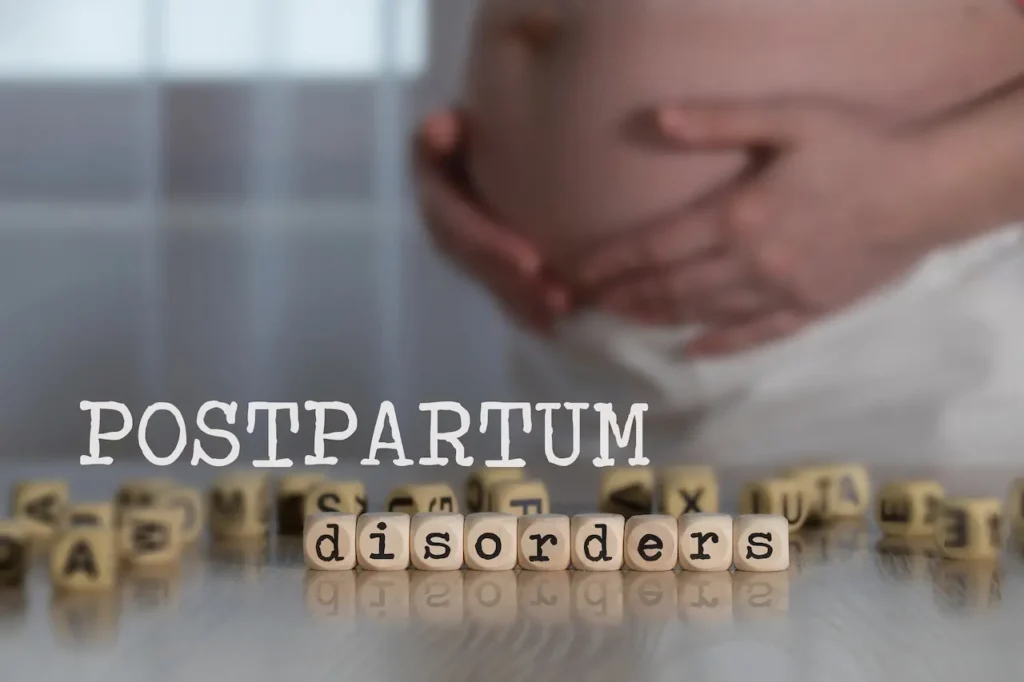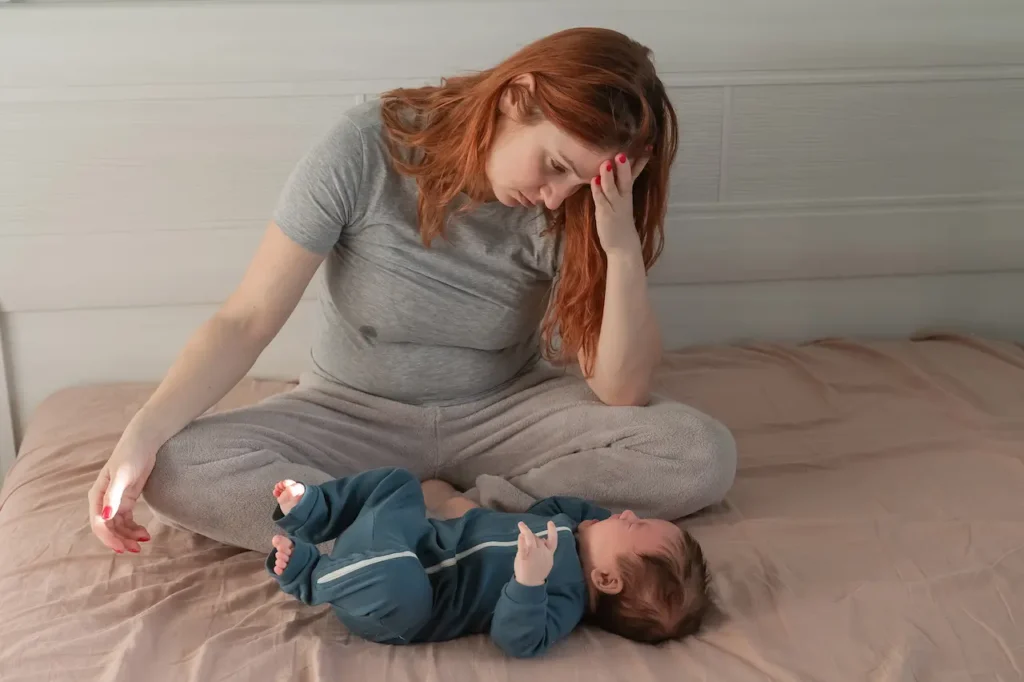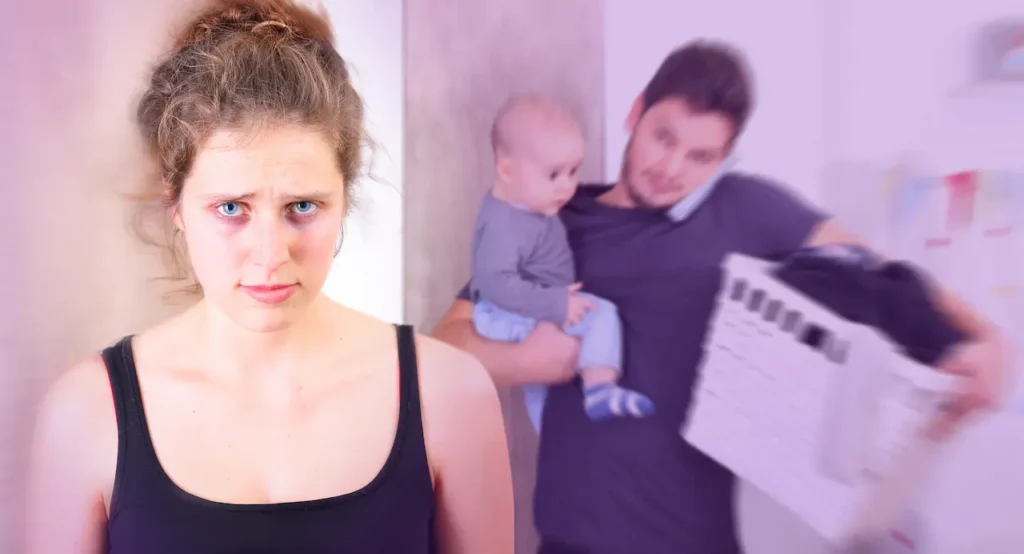Mums Get Real About Postpartum Bodies
Postpartum Depression is a Real Thing.
This is Postpartum, launched by blogger Meghan Boggs, who struggled with her body after having a child. Meghan Boggs, a mother of a daughter named Macy, told Babble that body acceptance was difficult in the months following Macy’s arrival.
“Even though my diet and exercise were healthy up until 36 weeks, I regained almost all the weight, which put me back to square one. “I didn’t experience any complications during my pregnancy, but I felt frustrated by my body for gaining weight despite my efforts.”
Everyone Matters
Meghan began a movement using hashtags to encourage women with diverse body types to be included in the postpartum conversation.
She said, “I wanted mothers who felt alone to see someone like them that they could relate to.” “I wanted to make this a viral phenomenon so that other mothers could join in and feel the same way I did.
Meghan’s idea has taken off, and there are now over 200 Instagram images of women who share their belly, stretch marks, lumps, and bumps, and celebrate the bodies they have (and the little people who got them there).
Meghan writes in the first tag post: “The truth is that I felt very lonely in what I shared as a mother plus size.”
I quickly understood why other moms, like myself, didn’t openly discuss this topic on social media. Even though I knew that there would be some criticism, I felt it was important to me and others like myself to share my story. Post the photos, and let’s talk about it. “This is postpartum.”

It Means Something
Meghan hopes that starting a conversation about the vulnerability, value, and variation of the post-baby body will help women feel less alone and more supported.
Meghan writes, “Our journey has meaning.” “Our postpartum experience is all normal, and we are all on a spectrum. Let’s share now and in the future, share. Let’s get up. Let’s embrace postpartum bodies. You can be plus-sized and have stretch marks, scars, or loose skin. It’s all postpartum. It all counts. All of it counts. All of it means something to you. “You, mama, deserve it.”
For the Days You Want To Quit Motherhood
This post is dedicated to my little cousin, who has just celebrated her first year of motherhood.
It’s for You. qw
What you are doing is extraordinary!
I Can Tell You That Being a Mother is the Most Difficult Thing I Have Ever Done
I have worked with the UN to combat human trafficking and with NGOs in South Africa on the orphan crisis. It’s still the hardest thing that I have ever done. By a long shot. You will be unable to function if you are at someone else’s beck and call. You will lose your sense of self, which can take a lot of time and tears to recover.
When I was a young mother, I can remember my baby crying and looking at me, my mom, or an aunt in the room, wondering why they hadn’t picked him up. I could not accept that my responsibility for his crying would never end.
You Will Have Days Where You Simply Want to Finish
This is when you need a break. You want to return to your late afternoon naps, movie nights, and books. This does not make you a bad mother.
You are a Person Going Through the Most Profound Growing Pains in Human History.
I have a few small suggestions for these moments. I will invite you all to share your experiences in the comments. Please encourage. Please offer your advice on how to navigate through the lonely moments of motherhood.
Bronwen, my dear, I have some advice for you.
1. Sleep More, and Sleep Better.
In the first few months after having a child, I often found myself in an irrational argument with Peter. He knows me well enough to tell me that I need to take a break and go nap. It used to drive me crazy and I would fight it until I passed out. Then emerge from the bedroom hours later with a renewed passion for life, baby, and husband.
You will need to find a friend, a mom, a husband, or whoever can give you some time to sleep. You can’t do any of these things: cleaning, watching TV, or grocery shopping. Sleeping is all that’s required. It’s essential.
2. Take a Break.
You are not a bad mother if you take a break. You are a good mom if you take care of yourself so that you can continue to care for your baby. You can spend a few hours shopping, go to the movies, or have a weekend getaway. If you want to continue, you will need it as much as sleep and oxygen. Now is the time to make plans.
3. Call a Girl
You can’t expect your father to be everything. He can’t. He can’t, even if he wants to. You will need girlfriends at some point who have been there and cried those tears, so they can offer you a different type of comfort. Surround yourself. Do not let the cocoon of the baby leave you alone.
Find your closest friends.
Your mom, a kind woman at the church, or your neighbor with twins next door. You need someone to confide in. Regularly.

4. Enjoy What You Love to Eat, and Not What You Have Time For
It’s not uncommon for moms to eat leftovers, crackers, or cold food. They may also eat it quickly or even forget to eat it. Plan meals you enjoy, which you can eat hot and with someone else holding your baby.
5. Chocolate
Enough said
6. God is Real.
He is a parent. He’s a parent. He created the system. Tell him what you think. Vent. Vent.
When you are exhausted at the end of a long day, when your baby sleeps for just a few hours, and when you close your eyes in a desperate attempt to sleep, He is still awake. He sings to you and stays awake. Sings! Sing! Just for you.
7. Laugh and Cry
Motherhood is a mixture of all the good, the bad, and the ugly. Let off some steam. Laughter, and especially laughter with friends who have been through it, can be the best medicine.
8. When to Seek Deeper Help
This list is a start. If it doesn’t work. If your joy doesn’t emerge from the fog. You feel isolated, alone, and desperate. You need to seek out a professional and wise counselor who will listen to you and provide you with the tools you need to help yourself.
This Does Not Mean That You are Weak. This Choice Means That You are Strong.
I love you deeply and I wish I could come over and bring cookies, cake, or celery to your house if that is what you like. You are not alone. You are walking a road that has been walked by thousands of mothers over the years who have struggled with finding the balance between motherhood’s miracle and the quiet despair it can bring.
What You Should Know About Postpartum Complications?
You’re probably focused on your newborn baby after giving birth. You can still have health issues in the months and weeks following childbirth. Postpartum complications are what they’re called.
Some of these issues can be fatal. A pregnancy-related death is when a woman dies while pregnant or in the first year after the end of her pregnancy. More than half of the pregnancy-related deaths occur after a child is born.
In the United States, pregnancy-related deaths have increased dramatically in recent decades. Black, American Indian, and Alaska Native women are two to three times more likely than white women to die from pregnancy-related causes. It is believed that more than 60% of all pregnancy-related deaths can be prevented.

Why Some Problems Are Overlooked?
It’s normal to experience some discomfort and fatigue after childbirth. Lack of sleep, hormonal changes, and breastfeeding concerns are also common.
You may not be aware of what is typical after childbirth, or what symptoms could indicate a problem. You may also not know the right time to seek medical attention.
Your healthcare team may not detect risk factors before you leave the hospital if you have given birth in a medical facility.
Often, people don’t visit a health professional for 4 to 6 weeks after giving birth. Up to 40% of women don’t schedule an appointment for a post-natal checkup with their healthcare team. Two reasons for not visiting a healthcare professional are not being able to and not having health insurance. Many women receive little or no advice on how to recover after childbirth.
Common Postpartum Complications
According to the Centers for Disease Control and Prevention (CDC), some of the most common causes of death during pregnancy are:
- Cardiovascular diseases are those that affect the heart or blood vessels.
- Before childbirth, other medical conditions are often present.
- Sepsis is a serious infection.
- Hemorrhage is the term for heavy bleeding following childbirth.
- Cardiomyopathy is a disease of the muscle in the heart. This condition causes the heart to have difficulty pumping blood to the body.
- Blockage of a blood vessel in the lung that carries blood from the heart into the lungs. The blockage is often caused by blood clots traveling from the legs to the lungs, also known as thrombotic embolism.
- Stroke.
- Hypertension is high blood pressure or preeclampsia, which is hypertension linked to protein in the urine when pregnant.
- A rare condition in which amniotic fluid, the fluid surrounding the baby during pregnancy, or fetal materials such as fetal cells enter the bloodstream of a pregnant woman. Amniotic fluid is a common cause of this condition.
- Anesthetics are the drugs used to reduce pain during surgery or delivery.
Sometimes, the cause of a death related to pregnancy is unknown.
Risk Factors
Overall, the risk of death from a pregnancy-related problem is low. People with chronic conditions like heart disease, high blood pressure, or obesity are more likely to die from pregnancy-related complications. Take extra care after birth if you have any of these risk factors.

Warning Signs
If detected early, many postpartum complications are treatable.
If You:
- Chest pain.
- Shortness of breath or difficulty breathing.
- Tiredness that does not improve with rest.
- Seizures.
- You may have thoughts of harming yourself or your child.
If You Experience:
- Blood clots that are the size of an omelet or larger.
- Incisions are cuts from surgery that don’t heal.
- Legs that are painful, swollen, or have changed color.
- Temperatures of at least 100.4 degrees Fahrenheit or 38 degrees Celsius.
- Headache that does not improve after taking medication or headaches with visual changes.
- If you measure your blood pressure after birth, take more than one reading of 150/100.
Conclusion
In the end, accepting and embracing postpartum body realities is a crucial step in creating a community of support for new mothers. We can help to break down the stigma surrounding postpartum experiences by sharing our personal stories. This will also promote a culture that is accepting and loving of ourselves. Each mother’s story is unique. Through open discussions, we empower each other to regain confidence, heal and celebrate the incredible courage it takes to navigate after childbirth.



